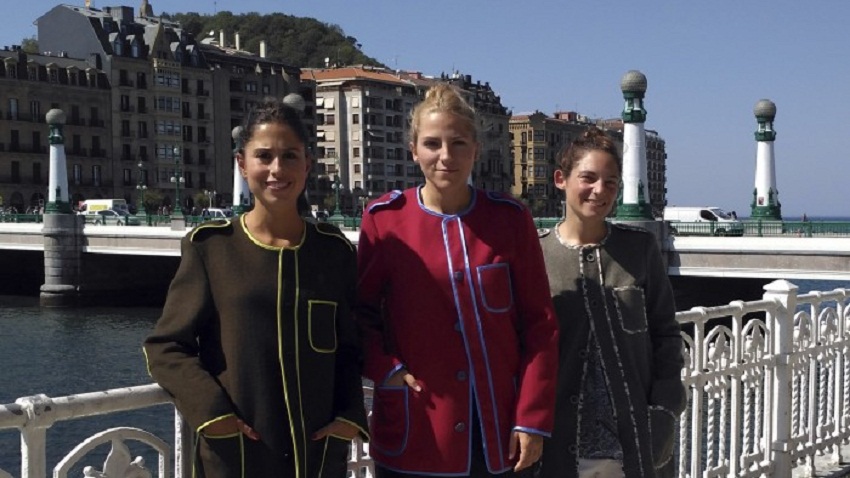Oihane Pardo had been using her grandmother’s kaiku for years, even during her stay in Shanghai, is the origin of Amarenak, the innovative design project with which this architect has made a leap to fashion. “When I wanted to buy a new one, I realized that they were not very high quality and very folkloric, like a costume,” she said. That is why she decided to put her mind to it, get to work and design her own, and along the way, improve its quality and make it more modern. The designs ware for sale on the Amarenak website.
Donostia-San Sebastian. A reinterpreted kaiku, with new colors, high quality fabric, and new forms is what Oihane Pardo is proposing with kaikus Amarenak. This is an innovative project that has earend the support of the Provincial Government of Gipuzkoa as part of the larger project to support young entrepreneurs.
Oihane Pardo is an architect, and at EuskalKultura.com we know her form the Euskal Etxea in Shanghai, city where she lived for three years. There, she gave a talk about the Auxiliary Navy of the Basque Country and its work during the Civil War, a topic that she studied deeply with her father, historian Juan Pardo San Gil. “I didn’t live in Shanghai, but in Kunshan, a nearby city where there are many Basques who work there. It was curious, to live on the other side of the world, but surrounded by Basques. In fact, we speak Basque, English or Chinese,” she said.
Her grandmother’s kaiku
During her stay in China, she took her grandmother’s kaiku, one of her favorite garments. “I wore it at home, it is a very comfortable and elegant coat,” she explained. When she needed a new one, she looked for one similar but it didn’t exist. “The new ones weren’t as nice: the fabric was of lesser quality, and they were very folkloric, like costumes.” Frustrated, she decided to pick up needle and thread and make one to her liking. The new kaiku was so successful among her friends that Oihane began thinking about making more.
With this idea in mind, Pardo returned to Donostia and began to give the project shape. Amarenak was very well-received and had a lot of support including that from the Provincial Government in Gipuzkoa. The design is Oihane’s and the kaikus are made by seamstresses in Gipuzkoa. “I wanted the woolen fabric also to be local, but I couldn’t find any in Euskal Herria, that is why I had to go to Castilla where I met a family who makes it using traditional methods,” she explains.
From Generation to Generation
The quality of the wool increases the cost of the product, but as Oihane explains, they are garments that last for years, and can be passed from one generation to the next as happened with her grandmother.
Video explaining the process:
Anyone wishing to purchase one, can do so through the Amarenak website.
Kaikus are also available in stores in Donostia like Vuelve Marcela, Arteuparte and in Tolosa at GKO Gallery.






 Send to a friend
Send to a friend Add comment
Add comment








